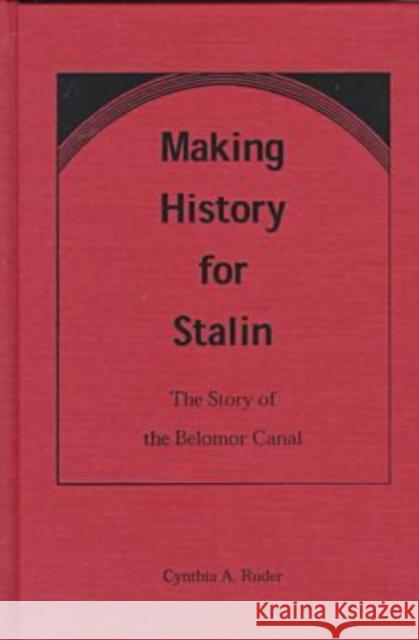Making History for Stalin: The Story of the Belomor Canal » książka
Making History for Stalin: The Story of the Belomor Canal
ISBN-13: 9780813015675 / Angielski / Twarda / 1998 / 17 str.
"A fascinating work. . . . Given the growing interest in the Stalin period among historians and literary scholars, this work is truly cutting-edge."--Catharine T. Nepomnyaschy, Barnard CollegeThe Belomor Canal, exalted in the 1930s by the Stalinist press, came to symbolize what was morally deplorable in Stalinism. Making the story available for the first time in English, Cynthia Ruder reconstructs the Canal project as a pivotal social, political, historical, and, most important, literary event.
Built with forced labor, the Belomor project has been a forbidden topic for half a century. With access to recently opened archives and to interviews with Canal construction survivors themselves, Ruder examines the project and its attendant literary works--drama, poetry, novels, and the collectively written History of the Construction of the Stalin White Sea-Baltic Canal--to create an unusually broad understanding of Stalinist culture. She argues that the project was the first to institutionalize the philosophy of perekovka, the idea that a new people who personify the Soviet Union in action and deed could be created through forced labor and ideological reeducation.
As both a construction project and a literary event, Belomor was characterized by contradictions: enthusiasm versus revulsion, good will versus cynicism, self-destruction versus self-preservation, and scorn for the West versus a desperate hunger to impress it. Ruder shows that these juxtapositions capture the tension that infused many other events at the time, turning Belomor into a microcosm of life and literature in Soviet Russia.Cynthia A. Ruder is a lecturer in Russian at Bryn Mawr College. She has published work in Russian Literature and American Approaches to Russian Language Pedagogy."











